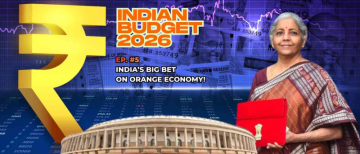Stock derivatives—futures and options—are among the most popular instruments for Indian traders seeking to profit from market movements or hedge their portfolios. Both have distinct features, risk profiles, and strategic uses. Here’s a comprehensive comparison to help you decide which is better for your trading goals in India.
Understanding Stock Futures and Options

Stock Futures
-
A futures contract is a legally binding agreement to buy or sell an underlying asset (like stocks or indices) at a predetermined price on a future date.
-
Both parties are obligated to fulfill the contract at expiry, regardless of market price.
-
Futures require margin deposits and daily mark-to-market settlements, exposing traders to potentially unlimited gains or losses.
Stock Options
-
An options contract gives the buyer the right, but not the obligation, to buy (call option) or sell (put option) an underlying asset at a fixed price before or at expiry.
-
Buyers pay a premium for this right, and their maximum loss is limited to this premium.
-
Sellers (writers) of options may face significant risk if the market moves unfavorably.
Key Differences: Futures vs Options

| Feature | Futures | Options |
|---|---|---|
| Obligation | Mandatory for both parties at expiry | Only seller is obligated; buyer has a choice |
| Risk | Unlimited profit and loss potential | Buyer’s loss limited to premium; seller has higher risk |
| Upfront Cost | Margin required | Premium paid by buyer; margin for sellers |
| Flexibility | Less flexible; must execute | More flexible; buyer can let contract expire |
| Use Case | Best for strong market views, hedging | Ideal for low-risk, hedging, or volatile markets |
| Capital Need | Higher (due to margin and mark-to-market) | Lower for buyers (premium only) |
| Time Decay | No time decay | Value erodes as expiry nears (time decay) |
| Regulation | SEBI, NSE, BSE | SEBI, NSE, BSE |
Infact, some traders use a lot of trading tools like Ronivisix Finland to trade better.
Pros and Cons for Indian Traders
Futures:
-
Pros: High leverage, direct exposure, suitable for strong market convictions, and effective for hedging large portfolios.
-
Cons: Higher risk due to mandatory execution, margin calls, and potential for unlimited losses.
Options:
-
Pros: Limited risk for buyers, strategic flexibility, useful for hedging and speculation in volatile or uncertain markets, lower upfront capital.
-
Cons: Complex pricing, time decay erodes value, sellers face higher risk, and transaction costs can be higher due to premiums and brokerage.
When to Choose Futures or Options in India

Choose Futures If:
-
You have a strong directional view on the market or stock.
-
You can tolerate higher risk and margin requirements.
-
You’re seeking to hedge large or long-term positions.
Choose Options If:
-
You prefer limited risk and flexible strategies.
-
You want to benefit from market volatility or hedge existing positions.
-
You have lower capital to deploy and want to avoid margin calls.
Cost and Regulatory Considerations
-
Transaction Costs: Both futures and options are subject to brokerage, exchange fees, and Securities Transaction Tax (STT). Recent STT hikes have increased trading costs for both instruments, with options generally incurring higher STT due to the premium component.
-
Regulation: Both are regulated by SEBI and traded on NSE and BSE, ensuring transparency and standardized contracts.
Which Is Better for Trading in India?
There’s no one-size-fits-all answer. The choice between stock futures and options depends on your risk appetite, capital, market outlook, and trading goals:
-
Futures are better for experienced traders with strong market views and higher risk tolerance.
-
Options suit those seeking flexibility, limited risk, and strategies tailored to volatility or hedging.

For most retail traders in India, options offer a safer entry point due to their limited risk and strategic flexibility. However, futures can deliver higher returns for those who can manage the risks.
With inputs from agencies
Image Source: Multiple agencies
© Copyright 2025. All Rights Reserved Powered by Vygr Media.























